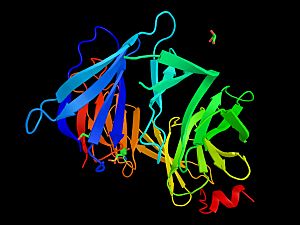Inherited defects in DNA damage response (DDR) systems can result in a range of diseases, including severe cancer susceptibility. This has been borne out in aggressive prostate cancer. For example, several studies have detected rare variants in the BRCA2 gene in men with advanced prostate cancer.
Almost all research into DDR gene alterations in prostate cancer has been conducted using population samples and gene samples that are heavily skewed to Europeans and European Americans. African American men have higher prostate cancer incidence and mortality rates than European American men, and genetic factors presumably play a role.
Adam S. Kibel, MD, chief of the Division of Urology at Brigham and Women’s Hospital, Anna Plym, PhD, a research fellow in the division, and colleagues performed the most comprehensive study to date on the role of inherited DDR genes in aggressive prostate cancer. In JNCI Cancer Spectrum, they report high carrier frequency of DDR gene alterations in lethal cases irrespective of ancestry.
Methods
The unmatched case–case study included blood or buccal swab samples from 764 patients with lethal or indolent prostate cancer, of whom 25% were African Americans. Self-reported racial ancestry was confirmed with genetic profiling. Prostate cancer was defined as lethal if the patient had died or been diagnosed with metastatic disease at any point.
The researchers sequenced 306 preselected DDR genes, identified likely pathogenic variants (PSVs), and assigned them to a DDR pathway.
Prevalence of Genetic Alterations
95 unique PSVs were identified:
- In 19% of lethal cases vs. 10% of indolent cases, the patient carried at least one PSV in a DDR gene (P=4.30×10−4)
- Overall, carrier frequency was not significantly different between lethal cases of African ancestry (17%) and lethal cases of European ancestry (19%)
- Pathogenic BRCA2 alterations were less common among lethal cases of African ancestry (0.9%) than lethal cases of European ancestry (5.1%)
Analyses Excluding BRCA2
Since BRCA2 is already known to be associated with aggressive prostate cancer, the team repeated the analysis excluding PSVs in that gene:
- The frequency of ≥1 PSV in a DDR gene was 15% in lethal cases vs. 10% in indolent cases (P=0.04), so the increased frequency of DDR alterations in lethal cases is not due solely to BRCA2 variants
- The carrier frequency of DDR gene alterations was similar among lethal cases of African (16%) and European (14%) ancestry
DDR Pathways Involved
Core DDR pathways include DNA repair mechanisms, damage tolerance processes, and cell-cycle checkpoint pathways. In this study, three pathways were significantly associated with lethal prostate cancer in the combined cohort:
- Homologous recombination, which is one method of repairing DNA lesions
- Fanconi anemia, which results in impaired DDR
- Checkpoint factor (a non-core DDR pathway that includes the genes ATM, ATR, and PER2)
The associations differed by ancestry and severity of cancer. For example, among patients of African ancestry, only lethal cases had PSVs within genes belonging to the checkpoint factor pathway, and PSVs also appeared in genes belonging to the mismatch repair pathway.
Clinical Relevance
Diagnostic and therapeutic approaches that target DDR are likely to be beneficial for both African American and European American patients with prostate cancer. Genes within the checkpoint factor pathway may be of importance for men of either ancestry, whereas the mismatch repair pathway may be of special interest for African Americans.
